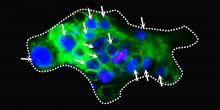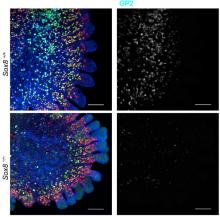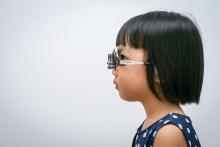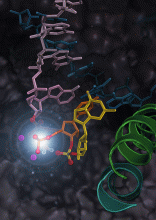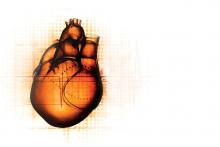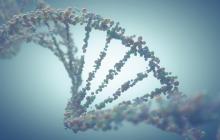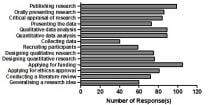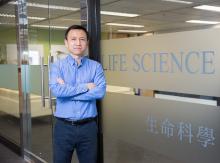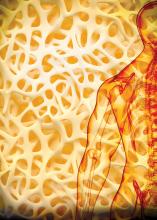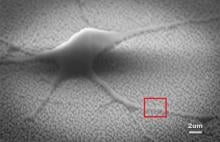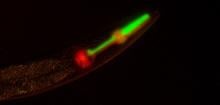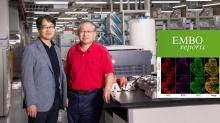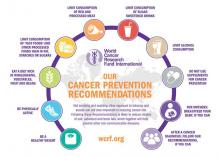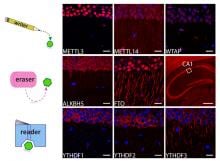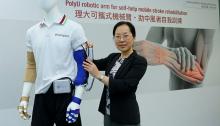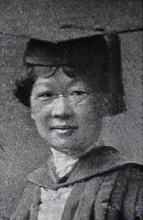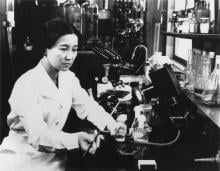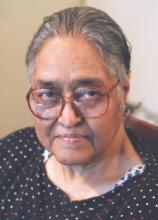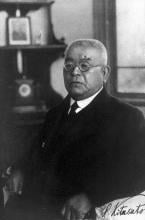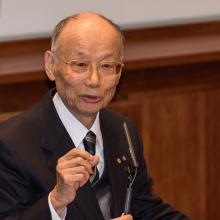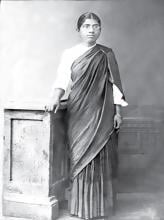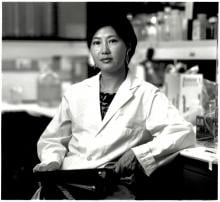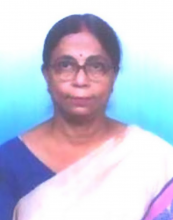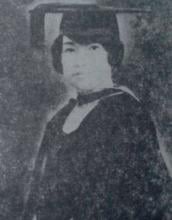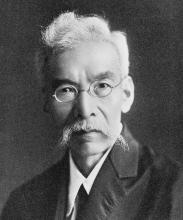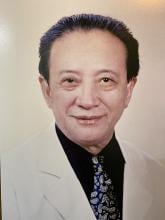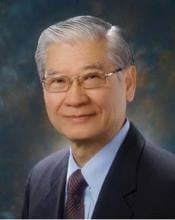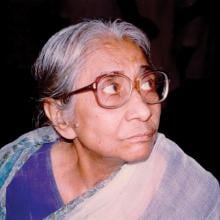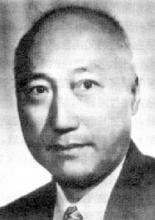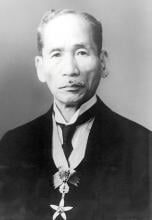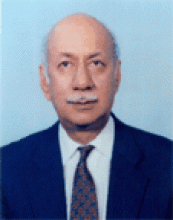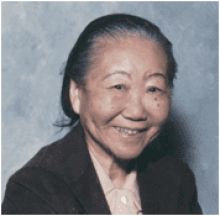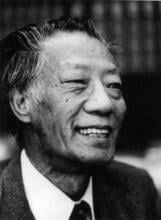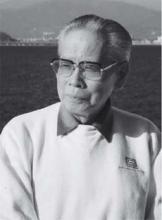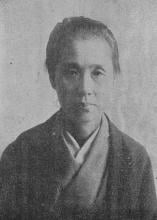Health
News

26 Apr 2019
BDP Week 2019 in China enjoys unparralleled industry support and is known for generating knowledge, creating business opportunities, and bringing innovative ideas to the table.
24 Apr 2019
Fruit fly studies reveal proteins that promote healthy nervous system development by preventing the reversal of nerve cell differentiation.

15 Apr 2019
This conference brings together a focus on technology development as well as applications for biomarker analysis in cancer, cardiovascular disease and other disease classes. Call for Posters deadline: 31 August 2019.
08 Apr 2019
Joint press release by Hokkaido University and Keio University
Scientists have identified a protein critical to the immune system development and antibody production in mice, which could contribute to understanding the gut defense mechanism in infants.
28 Mar 2019
Researchers investigated existing drugs for molecules that affect circadian rhythms and found a known anti-aging supplement reduced jet lag in mice.
27 Mar 2019
A new model may help clinicians predict the possibility of death from severe dengue infection.
25 Mar 2019
A lens developed by optometrists in Hong Kong can delay the progression of short-sightedness in children.
22 Mar 2019
Stretchable devices could have a wide range of potential uses, from wearable health monitors to elastic solar cells to artificial skin.
21 Mar 2019
Scientists from The Hong Kong University of Science and Technology (HKUST) (HKUST) have recently uncovered the mechanisms of how RNA polymerase II performs intrinsic cleavage reaction to proofread RNA transcriptions, shedding light on how mis-regulation of accurate transcription can lead to diseases including cancer and Alzheimer’s disease.

18 Mar 2019
Senior Researcher Wonseok Kang signed a technology transfer contract for commercialization of DGIST-VRES CUBE 'Complex Life Log Management Technology'. Will develop new services such as living and health with life data management Technology
18 Mar 2019
A compact sensor noninvasively checks dengue severity and cholesterol at home or in any health care centre.
14 Mar 2019
A new mouse model accurately mimics diabetic kidney disease in humans, suggesting new approaches for treatment.

11 Mar 2019
Scientists at The Hong Kong University of Science and Technology (HKUST) (HKUST) won three of the seven awards presented by the Croucher Foundation this year.
06 Mar 2019
With a lack of financial budget, poor support system and an erosion of professional autonomy amongst Health Care Professionals (HCP)s in developing countries, urgent calls for provision of more university-based education programs with timely policies to speed up progress are needed across Asia’s entrenched medical system governance.
06 Mar 2019
A research team has discovered a new mechanism that could delay the degeneration of injured nerves, bringing new hope to the treatment of nerve damage and neurodegenerative diseases such as Parkinson and Amyotrophic Lateral Sclerosis (ALS).
05 Mar 2019
A new scaffold expands to fill in bone defects and encourage tissue growth.
04 Mar 2019
A group of Hokkaido University scientists and collaborators have developed a method that could be used to treat heart failure patients whose exercise capacity has been impaired.
01 Mar 2019
An award-winning device employs nanotechnology to safely grow neural stem cells for replacement therapy research.
22 Feb 2019
A gene-editing Trojan horse that sneaks up on osteosarcoma cells could help the fight against this aggressive childhood bone cancer.
22 Feb 2019
Laboratory model breaks laws of heredity, opening up new research possibilities in genetics and synthetic biology.
15 Feb 2019
Ten projects led by The Hong Kong Polytechnic University (PolyU) (PolyU) have recently received funding support from the inaugurated Research Impact Fund (RIF) under the Research Grants Council (RGC). Among them, half of them are health-related, covering areas of drug development, detection of scoliosis, myopia control and food safety.
23 Jan 2019
A team of researchers has discovered a key protein that serves as the basic element for the development of intracellular structure of nerve cells.
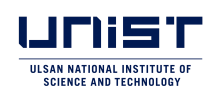
22 Jan 2019
Jun Ho Lee, a doctroral student in Life Sciences at South Korea's Ulsan National Institute of Science and Technology (UNIST), named a recipient of 2018 Life Science Awards.
17 Dec 2018
Major study of 7,663 Malaysian women shows that breastfeeding, physical activity and soy intake are protective against breast cancer. The findings were from the Malaysian Breast Cancer (MyBrCA) genetic study and the Malaysian Mammographic Density (MyMammo) study.

13 Dec 2018
HKUST is joining forces with Haven of Hope Christian Service to develop solutions that could improve the quality of life for the elderly and their caregivers.
27 Nov 2018
Research shows that up to 50 percent of cancer cases and deaths are preventable. Cancer prevention is the most cost-effective and sustainable long-term strategy for the control of cancer.
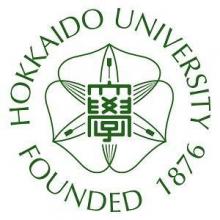
26 Nov 2018
Stressful events in the evening release less of the body’s stress hormones than those that happen in the morning, suggesting possible vulnerability to stress in the evening.
07 Nov 2018
New research documents how modifications to RNA keep nerve junctions flexible.

02 Nov 2018
UM researcher Dr. Chai Lay Ching was awarded the L'Oreal-UNESCO for Women in Science National Fellowship for her research in developing a real-time method to detect dangerous bacteria causing food-borne diseases in raw chicken.
31 Oct 2018
The Hong Kong Polytechnic University (PolyU) recently developed a robotic arm to facilitate self-help and upper-limb mobile rehabilitation for stroke patients.
Events
Sorry, no events coming up for this topic.
Researchers
Sorry, no researchers coming up for this topic.
- « first
- ‹ previous
- 1
- 2
- 3
- 4
Giants in history
Chinese biochemist Chi Che Wang (1894 - 1979), one of the first Chinese women to study abroad, advanced to prominent research positions at American institutions including the University of Chicago and the Northwestern University Medical School.
Ruby Sakae Hirose (1904 – 1960) was a Japanese-American scientist whose research contributed significantly to our understanding of blood clotting, allergies and cancer.
Flora Zaibun Majid ( 1939–2018) was an accomplished Bangladeshi researcher in botany and nutrition science and the first female chairperson of the Bangladesh Council of Scientific and Industrial Research.
Iranian physician and bacteriologist Azar Andami (8 December 1926 – 19 August 1984) developed a cholera vaccine to combat an outbreak that swept through the Middle East, India, Southeast Asia, and Africa in 1937.
Irene Ayako Uchida’s (8 April 1917 – 30 July 2013) strides to understand genetic diseases such as Down syndrome paved the way for early screening of chromosomal abnormalities in foetuses.
Baron Kitasato Shibasaburo (29 January 1856 – 13 June 1931) was a Japanese physician and bacteriologist whose work led to a new understanding of preventing and treating tetanus, diphtheria and anthrax.
Maggie Lim (5 January 1913 – November 1995) was a Singaporean physician who promoted family planning and expanded the access to clinics to improve the quality of life for mothers and children in Singapore’s early days.
By isolating soil microorganisms and studying the compounds they produce, Satoshi Omura (born 1935) discovered almost 500 organic compounds with unique properties that were produced by these microorganisms, including many new antibiotics.
The founder of the Adyar Cancer Institute in India, Muthulakshmi Reddy (30 July 1886 – 22 July 1968), fought to uplift women and girls from impoverished situations.
Chinese-American virologist and molecular biologist Flossie Wong-Staal (27 August 1946 – 8 July 2020) was the first scientist to clone HIV and determine the function of its genes.
Maharani Chakravorty (1937 – 2015) was one of India’s earliest molecular biologists whose research paved the way for advances in the treatment of bacterial and viral infections.
Archana Sharma (16 February 1932 - 14 January 2008) conducted research into plant and human genetics that expanded the understanding of both botany and human health. In relation to botany, she uncovered the means by which asexually-reproducing plants evolve into new species.
The first Thai woman to receive a degree in medicine, Margaret Lin Xavier (29 May 1898 – 6 December 1932), is best remembered for her compassion towards her less privileged patients.
In 1915, pathologist Katsusaburo Yamagiwa and his research assistant Koichi Ichikawa became the first to prove that chronic exposure to chemicals can cause cancer.
Filipino chemist and pharmacist Manuel A. Zamora (29 March 1870 – 9 July 1929) is best remembered for his discovery of the tiki-tiki formula to combat beriberi, a disease caused by Vitamin B1 deficiency.
After witnessing death and suffering as a youth in his home village during World War II, Nguyễn Tài Thu (6 April 1931 – 14 February 2021) set his sights on alleviating pain by becoming a doctor. After studying Traditional Chinese Medicine in China in the 1950s, Thu returned to Vietnam to serve in military hospitals. Eventually, he became the country’s foremost practitioner of acupuncture, a technique he first learned by inserting needles into himself.
David T. Wong (born 1936) is a Hong Kong-born American neuroscientist who is best known for discovering the antidepressant drug fluoxetine, better known as Prozac.
Indian organic chemist Asima Chatterjee (1917 to 2006) studied the medicinal properties of plant products, especially compounds known as vinca alkaloids.
Hsien Wu (24 November 1893 – 8 August 1959) is widely regarded as the founder of biochemistry and nutrition science in China. He was the first to propose that protein denaturation was caused by the unfolding of the protein, instead of chemical alteration.
Umetaro Suzuki (7 April 1874 – 20 September 1943) was a Japanese scientist best remembered for his research on beriberi, a disease caused by vitamin B1 deficiency, characterized by limb stiffness, paralysis and pain.
Syed Qasim Mehdi (13 February 1941 – 28 September 2016) was a Pakistani molecular biologist who was a founding member of the Human Genome Diversity Project (HGDP), which assessed human diversity by studying human migration, mutation rates, relationships between different populations, genes involved in height and selective pressure.
Tsai-Fan Yu (1911 – 2 March 2007) was a Chinese-American physician and researcher who was the first female full professor at Mount Sinai School of Medicine. She discovered that gout, a condition characterized by the painful inflammation of joints, was caused by elevated levels of uric acid in the bloodstream.
Min Chueh Chang (10 October 1908 – 5 June 1991) was a Chinese-American biologist who studied fertilization in mammalian reproduction.
A Japanese surgeon, Tetsuzo Akutsu (20 August 1922 – 9 August 2007) built the first artificial heart capable of keeping an animal alive.
Ogino Ginko (3 March 1851 – 23 June 1913) was the first registered female doctor to practise modern medicine in Japan.


